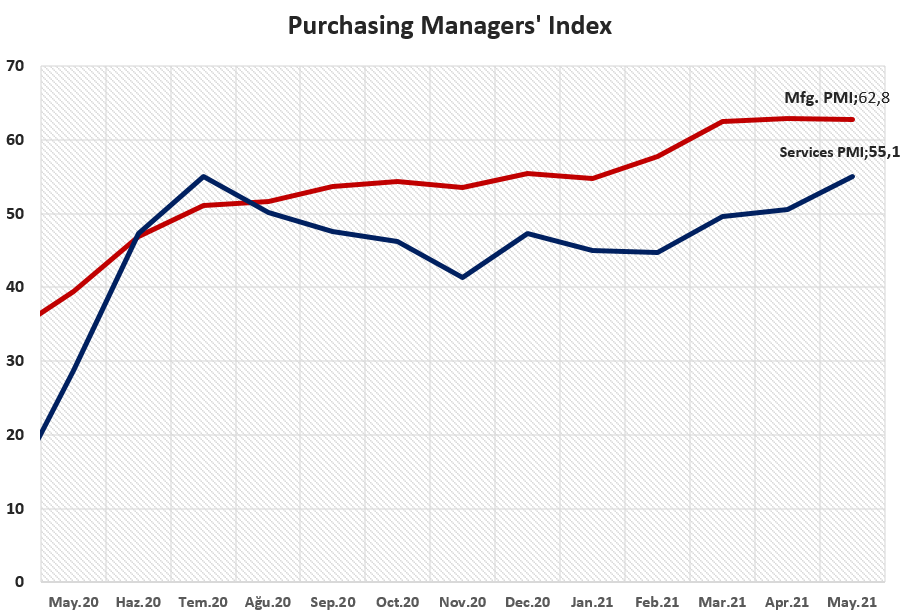Recovery Continues in Eurozone
According to preliminary data published by London-based global information provider IHS Markit, Service Purchasing Managers' Index (PMI) in Eurozone was 55.1 points, and Manufacturing Purchasing Managers' Index (PMI) was 62.8 points in May, both meeting market expectations.
Recently, rising cases of coronavirus in the Eurozone have sparked third-wave concerns, while countries such as Germany, Italy, France and Spain, which are leading economies of the continent, have expanded their restrictions. However, in addition to easing measures taken to combat the outbreak in Europe, the acceleration of the vaccination campaign has led to a decline in daily coronavirus cases. Thanks to the decreasing number of cases in this direction, some of the leading economies decided to loosen the existing measures.
Those decisions in April supported the Service Purchasing Managers' Index (PMI) to fall to 55.1. Although the manufacturing sector remained slightly below the figures of the previous month, it reached the third-highest growth in the survey's history. Manufacturing PMI maintained its momentum thanks to the strong new order inputs, which have not been seen in 15 years and Services PMI led to the rise in Eurozone's performance in May.
Meanwhile, service sector business activity, which has faced a marginal recovery after eight months, rose to its highest level since June 2018, sparking a recovery in demand as coronavirus restrictions eased.
The recovery in the service sector, as well as rising coronavirus cases around the world, has been strong enough to create a new increase in orders. However, suppliers' inability to provide enough output to meet orders, affecting supply chains at a relative rate, and extended lead times were evident above the manufacturing Purchasing Managers Index.
Meanwhile, strengthening demand and the resilience of the vaccination campaign have pushed firms to hire staff for the fourth consecutive month, pointing to a recovery in the economy. In addition, job creation maintained its second rise in two years, yet it declined slightly due to the decline in numbers of hired employees.
Also, number of people vaccinated in Europe reached 211 million doses according to current data and eased third-wave concern over the Eurozone. This easing, shown in daily coronavirus cases, provided the basis for easing existing restrictions. Recovery in leading economies such as France accelerated recovery and contributed to the recovery of the service sector as the measures began to be eased. In the coming period, gradual normalization in the Eurozone will continue, supporting the locomotive sectors of the Eurozone economy thanks to accumulated demand.





